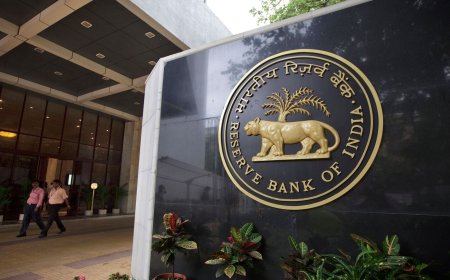Half of India’s LNG imports come from Qatar and UAE, relying on Strait of Hormuz for supplies
Half of India’s LNG imports come from Qatar and the UAE, all via the Strait of Hormuz—a geopolitical hotspot. Explore supply risks, market impact, and investor insights.

Strategic Dependency on Gulf Region Raises Energy Security Concerns
India, the world’s fourth-largest liquefied natural gas (LNG) importer, sources nearly 50% of its LNG supplies from Qatar and the United Arab Emirates (UAE). This crucial energy lifeline flows through the Strait of Hormuz, a narrow but geopolitically sensitive waterway, amplifying India’s vulnerability to regional tensions in the Gulf.
According to data from the Ministry of Petroleum and Natural Gas, out of the 21 million tonnes of LNG imported by India in FY24, over 10 million tonnes came from Qatar alone, followed by substantial volumes from the UAE.
The Geopolitical Choke Point: Strait of Hormuz
The Strait of Hormuz, only 21 miles wide at its narrowest point, is one of the most critical maritime transit routes globally. Approximately one-fifth of the world’s LNG and oil supply passes through this corridor, including the entire output bound for India from Qatar and the UAE.
Recent naval flare-ups and tensions between Iran, the United States, and Israel have heightened the risk of supply disruptions. A temporary closure or prolonged unrest in this strait could have severe repercussions on India’s energy prices and availability.
"Any disruption in the Strait of Hormuz would immediately impact Indian spot LNG prices and shipping insurance premiums," warns Dr. Pramit Mehta, energy economist at Delhi Energy Forum. "This makes it imperative for India to diversify its LNG sources and expedite domestic gas production."
India’s Long-Term Contracts Cushion Volatility
India’s major gas importers—Petronet LNG, GAIL, and Indian Oil Corporation (IOC)—have long-term contracts with Qatari suppliers, particularly QatarEnergy. These agreements, often signed at lower-than-spot-market prices, offer some protection against short-term market fluctuations.
However, roughly 30-35% of India’s LNG demand is met through spot market purchases, which are highly susceptible to global shocks. The Russia-Ukraine war and Red Sea tensions have already caused price spikes in the past two years.
"India is partially insulated through long-term contracts, but the spot market's role is growing with urban gasification and industrial demand rising," said Shreya Ghosh, lead analyst at ICICI Securities.
Domestic Gas Output Lags Behind Demand
Despite possessing promising offshore gas reserves, India’s domestic gas production covers only about 50% of its current demand. Reliance-BP’s new fields in the Krishna-Godavari basin and ONGC’s gas blocks have improved production, but not enough to reduce import dependency substantially.
India aims to raise the share of natural gas in its energy mix from the current 6% to 15% by 2030. This green transition goal will inevitably increase LNG import requirements unless domestic output scales significantly.
Diversification Strategies Underway
To address the over-reliance on the Gulf region, the Indian government has been exploring supply deals with the U.S., Australia, and African nations. In 2023, GAIL signed an agreement with ADNOC and Cheniere Energy to explore long-term LNG supply options.
Additionally, new LNG terminals in Dhamra (Odisha), Jaigarh (Maharashtra), and expansion projects in Kochi and Dahej are aimed at increasing regasification capacity and enabling diversified imports.
"Diversifying both origin and route of LNG imports is now a top strategic priority for India," said A.K. Jain, former petroleum secretary. "We need to think beyond West Asia and leverage newer partners in the Indo-Pacific."
Market Context and LNG Price Movements
Global LNG prices have remained volatile amid changing geopolitical dynamics. The Japan-Korea Marker (JKM), the benchmark for Asian LNG, is hovering around $11.5/MMBtu, up from $9.2/MMBtu earlier this year.
Indian buyers have become increasingly sensitive to price swings, especially given the rising rupee-dollar exchange volatility. While India has managed to maintain healthy reserves, the cost burden on utilities and city gas distribution companies is growing.
Investor Outlook: Infrastructure & Energy Stocks in Focus
The reliance on Qatar and UAE highlights the importance of infrastructure resilience. LNG terminal operators, pipeline companies, and domestic gas producers stand to benefit from rising policy focus and investments.
Key beneficiaries include:
-
Petronet LNG Ltd – Operating Dahej and Kochi terminals; strong long-term Qatari tie-ups.
-
GAIL India Ltd – A gas transportation leader with expanding international procurement reach.
-
Gujarat Gas Ltd and MGL – City gas distributors gaining from increased urban gas adoption.
"Investors should watch for policy pushes on energy diversification and pipeline infrastructure expansions. These are multi-year tailwinds," noted Siddharth Sinha, energy portfolio manager at Axis Mutual Fund.
A Crossroads of Opportunity and Risk
India’s heavy reliance on LNG supplies transiting through the Strait of Hormuz underlines a broader energy security risk. As geopolitical tensions persist, the strategic urgency to diversify both energy sources and supply routes is becoming paramount.
With LNG set to play a pivotal role in India’s clean energy transition, the focus must remain on securing diversified, stable, and competitively priced supplies, while simultaneously boosting domestic gas production capabilities.
What's Your Reaction?
 Like
0
Like
0
 Dislike
0
Dislike
0
 Love
0
Love
0
 Funny
0
Funny
0
 Angry
0
Angry
0
 Sad
0
Sad
0
 Wow
0
Wow
0












































































